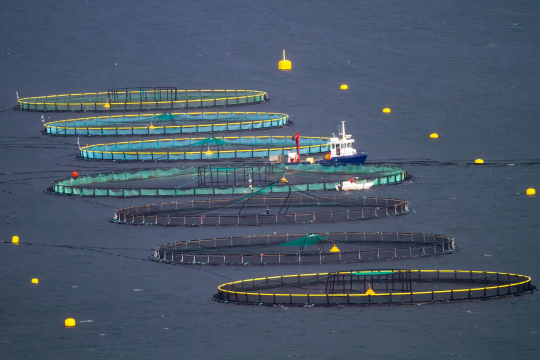As the oceans' condition is worsening and more species are becoming endangered or extinct, aquaculture is overtaking fisheries as the main source of seafood for human consumption. But how sustainable is aquaculture? A group of researchers have studied aquaculture systems around the world. They find great variation but also some positive results.
Aquaculture is the breeding, raising, and harvesting of fish, shellfish, and aquatic plants, also known as farming in water. It can help restore habitats and provide livelihoods and protein sources for the world’s growing populations.
"Aquaculture is important as a source of income and supports food security to domestic populations in the Global South,” says Håkan Eggert, one of the lead authors of the paper.
Environmental concerns
However, there have also been concerns about the environmental sustainability of aquaculture, for instance, its impact on ecosystems, effects of pollution, antibiotics, and parasites as well as social impacts.
Lack of data has prevented systematic comparison of global aquaculture production systems. The Aquaculture Performance Indicators (APIs) provide a rapid, low-cost approach to overcome data scarcity. The APIs build on work with Fisheries Performance Indicators.
Provides valuable data
22 researchers, including EfD researchers Håkan Eggert, Carlos Chavez, Nnaemeka Chukwuone, and Byela Tibesigwa, have studied 57 aquaculture systems globally using those APIs.
Nigeria, one of the countries in the study, has practiced aquaculture for about 70 years and the industry has grown considerably since around 2000. Now it contributes to about 25% of the country's seafood production. Nnaemeka Chukwuone was leading the Nigerian research team.
“We had very little data on Nigerian aquaculture. Our API data gives us valuable information. Catfish and tilapia aquaculture, the dominating species in Nigeria, are doing well from economic and social perspectives, but we see that there are environmental challenges. Compliance with environmental regulation and the level of water effluents are two areas for improvement,” says Nnaemeka Chukwuone.
No trade-off between aspects of sustainability
The study shows a great variation, but aquaculture can be sustainable in all three aspects of sustainability; environmental, economic, and social. Further, they find that on average the three aspects of sustainability are complementary. That suggests that there is no systematic trade-off between economic, environmental, and social sustainability.
Read the paper!
By: Petra Hansson
